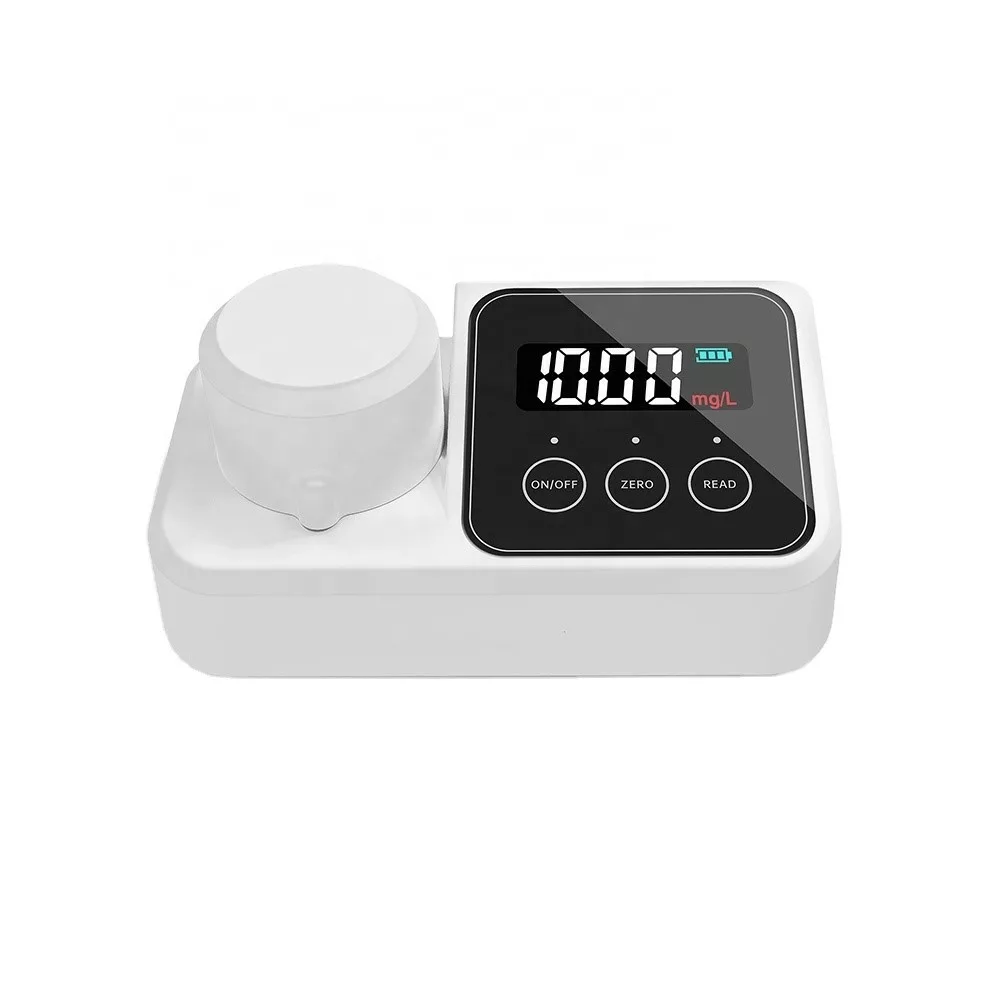Portable Residual Chlorine Analyzer: Accurate On-the-Go Chlorine Testing for Water Quality Control
A Portable Residual Chlorine Analyzer KRC/P/10 is a vital tool for monitoring water quality in various industries, including drinking water treatment, wastewater management, food and beverage production, and swimming pool maintenance. This compact and highly accurate device allows for rapid, on-site measurement of chlorine levels, ensuring that the water meets safety standards for consumption and environmental compliance. Whether you are a water treatment technician, quality control specialist, or environmental health officer, a portable residual chlorine analyzer ensures that water remains safe and free of harmful contaminants.
What is a Portable Residual Chlorine Analyzer?
A Portable Residual Chlorine Analyzer is a handheld device designed to measure the concentration of free or total chlorine in water samples. Chlorine is a widely used disinfectant in water treatment, but maintaining the correct residual chlorine levels is crucial to ensuring that the water remains safe without causing negative effects. This analyzer provides real-time, accurate readings, enabling users to quickly assess and adjust chlorine levels as needed.
Portable residual chlorine analyzers are ideal for fieldwork, offering convenience and reliability when testing water in remote locations or during on-site inspections.
Why is Measuring Residual Chlorine Important?
Residual chlorine refers to the amount of chlorine remaining in water after the disinfection process has taken place. This residual ensures that the water continues to be free of harmful pathogens as it travels through pipes and storage systems. However, both under-chlorination and over-chlorination pose risks:
- Under-Chlorination: Insufficient chlorine levels may allow bacteria and viruses to grow, posing health risks.
- Over-Chlorination: Excessive chlorine can cause unpleasant taste, odor, and potentially harmful chemical reactions in water.
Therefore, regular monitoring with a Portable Residual Chlorine Analyzer is crucial to maintaining the delicate balance of chlorine in water supplies.
Key Features of a Portable Residual Chlorine Analyzer KRC/P/10
When selecting a Portable Residual Chlorine Analyzer, certain features enhance its performance and usability, ensuring accurate and efficient water testing:
- Compact and Lightweight: A portable design makes it easy to carry for fieldwork, allowing users to take immediate readings at any location.
- Rapid Response Time: The analyzer provides fast results, typically within a few seconds or minutes, enabling users to quickly make decisions about water treatment.
- Wide Measurement Range: Look for an analyzer that can measure a broad range of chlorine levels, from trace amounts to higher concentrations, to suit various water treatment needs.
- High Accuracy and Sensitivity: Accurate readings are essential to ensure that chlorine levels are within regulatory limits, preventing under- or over-chlorination.
- User-Friendly Interface: A simple, intuitive interface ensures that even non-technical users can operate the device with ease, making it ideal for various industries.
- Durability and Water Resistance: Since the device is used in environments where it may be exposed to moisture, a durable and waterproof design ensures long-term use.
- Battery Life: Long-lasting batteries are essential for extended fieldwork, minimizing the need for recharging during critical testing.
Applications of a Portable Residual Chlorine Analyzer
Portable Residual Chlorine Analyzers are widely used in industries where water quality is critical for safety, regulatory compliance, and operational efficiency:
- Drinking Water Treatment: Ensure that tap water remains safe for consumption by regularly testing chlorine levels in municipal water supplies.
- Wastewater Treatment: Monitor residual chlorine in treated wastewater before discharge into natural water bodies to comply with environmental regulations.
- Food and Beverage Production: In industries where water is used for processing, maintaining the correct chlorine levels is vital to ensure product safety and quality.
- Swimming Pools: Pool maintenance teams use chlorine analyzers to maintain the correct disinfection levels in pool water, ensuring swimmer safety.
- Environmental Health Monitoring: Government agencies and environmental specialists test surface water, rivers, and lakes to detect chlorine contamination and prevent ecological harm.
Benefits of Using a Portable Residual Chlorine Analyzer
- On-the-Spot Accuracy: Quickly test and verify chlorine levels without waiting for lab results, ensuring immediate decision-making and corrective action.
- Regulatory Compliance: Regular chlorine monitoring ensures that water meets local, state, and international safety standards, preventing regulatory fines and sanctions.
- Cost-Effective: By using a portable analyzer, organizations can save on lab testing costs while ensuring that water treatment systems are optimized for efficiency.
- User Flexibility: The portability and ease of use make this device suitable for both trained technicians and non-experts, enhancing versatility in various industries.
- Improved Water Safety: Ensuring the proper chlorine balance helps prevent waterborne illnesses, protecting public health and improving the quality of drinking water, recreational water, and wastewater discharge.
How to Use a Portable Residual Chlorine Analyzer KRC/P/10
Operating a Portable Residual Chlorine Analyzer is simple and efficient. Follow these steps for accurate chlorine testing:
- Prepare the Water Sample: Collect a water sample from the source you want to test, ensuring that it’s free from contamination.
- Turn on the Analyzer: Power up the device and ensure it’s calibrated according to the manufacturer’s guidelines.
- Insert the Sample: Place the water sample in the designated compartment or cuvette, depending on the device model.
- Initiate the Test: Start the test by pressing the measurement button. The analyzer will begin evaluating the chlorine concentration in the sample.
- View Results: After a few seconds, the device will display the chlorine levels on its screen.
- Record and Act: Note down the readings and compare them to your water quality standards. Adjust chlorine levels accordingly to ensure safety and compliance.
Factors to Consider When Choosing a Portable Residual Chlorine Analyzer
Selecting the right Portable Residual Chlorine Analyzer depends on your specific water testing needs. Here are key factors to keep in mind:
- Measurement Type: Choose between free chlorine and total chlorine measurement, depending on your water testing requirements.
- Accuracy: Ensure the device provides accurate readings that match your industry’s regulatory standards.
- Range: Select a model that covers the range of chlorine levels you typically encounter in your application, whether low or high concentrations.
- Calibration: Ensure the device can be easily calibrated to maintain accuracy over time.
- Ease of Use: Look for an analyzer that’s intuitive to operate, even in field conditions, with minimal training required.
- Durability: Fieldwork often exposes the device to harsh conditions, so choose a model that’s durable, waterproof, and shock-resistant.
Conclusion
A Portable Residual Chlorine Analyzer is an indispensable tool for anyone tasked with ensuring water safety. Whether for municipal water treatment, industrial processing, or recreational water management, this device delivers precise, real-time measurements of chlorine levels, enabling rapid response to water quality issues. Its portability, ease of use, and accuracy make it the perfect solution for on-site chlorine monitoring, ensuring regulatory compliance, safeguarding public health, and protecting the environment.





Reviews
There are no reviews yet.